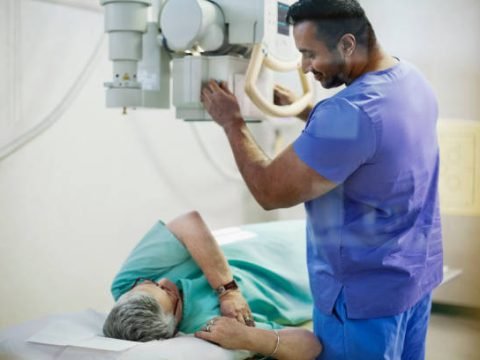
Nursing science, also known as nursing research, is the systematic study of phenomena related to nursing practice. It involves the exploration, explanation, and prediction of nursing phenomena through scientific methods.
Nursing science is a vast field with numerous career paths beyond traditional bedside nursing. Whether you’re interested in direct patient care, research, education, administration, or policy-making, there are diverse opportunities within the nursing profession. Below is a comprehensive list of 94 careers related to nursing science.
94 Rewarding Careers Related to Nursing Science
- Registered Nurse (RN): Provides patient care, coordinates treatments, and educates patients and families.
- Licensed Practical Nurse (LPN): Delivers basic nursing care under the supervision of doctors and RNs.
- Certified Nursing Assistant (CNA): Assists patients with daily activities and vital signs monitoring.
- Nurse Practitioner (NP): Provides advanced nursing care and can prescribe medications.
- Clinical Nurse Specialist (CNS): Specializes in a specific patient population or medical area.
- Certified Registered Nurse Anesthetist (CRNA): Administers anesthesia and monitors patients during procedures.
- Certified Nurse Midwife (CNM): Provides prenatal, childbirth, and postpartum care to women.
- Pediatric Nurse: Cares for children and adolescents, focusing on their unique health needs.
- Geriatric Nurse: Specializes in caring for elderly patients, addressing age-related health concerns.
- Psychiatric-Mental Health Nurse: Works with patients experiencing mental health disorders.
- Nurse Educator: Teaches nursing students in academic or clinical settings.
- Clinical Instructor: Supervises and mentors nursing students during clinical rotations.
- Nursing Professor: Conducts research and teaches at the university level.
- Director of Nursing Education: Oversees nursing programs and curriculum development.
- Clinical Nurse Educator: Provides ongoing education to nurses within healthcare institutions.
- Staff Development Coordinator: Plans and implements educational programs for nursing staff.
- Nurse Manager: Supervises nursing units and ensures quality patient care.
- Chief Nursing Officer (CNO): Leads nursing departments and sets strategic goals for healthcare facilities.
- Nursing Supervisor: Manages nursing shifts and ensures smooth operations within departments.
- Healthcare Administrator: Oversees the overall management of healthcare facilities.
- Cardiac Nurse: Specializes in treating patients with heart conditions.
- Oncology Nurse: Cares for cancer patients, administering treatments and providing support.
- Neonatal Nurse: Works with newborns and infants, often in intensive care settings.
- Orthopedic Nurse: Manages patients with musculoskeletal issues and injuries.
- Emergency Room Nurse: Provides immediate care to patients in emergency situations.
- Trauma Nurse: Specializes in treating patients with critical injuries.
- Diabetes Nurse Educator: Teaches patients how to manage diabetes and prevent complications.
- Hospice Nurse: Provides end-of-life care and support to terminally ill patients and their families.
- Public Health Nurse: Focuses on community health promotion and disease prevention.
- Forensic Nurse: Collects evidence and provides medical care to victims of violence or trauma.
- Nurse Researcher: Conducts studies to advance nursing knowledge and practice.
- Clinical Trials Nurse: Coordinates and monitors clinical trials for new treatments.
- Health Policy Nurse: Advocates for healthcare policy changes based on research findings.
- Quality Improvement Nurse: Works to improve patient care outcomes and safety measures.
- Informatics Nurse: Implements and manages healthcare information systems.
- Telehealth Nurse: Provides remote healthcare services via telecommunications technology.
- Genetics Nurse: Educates patients about genetic conditions and testing options.
- Pain Management Nurse: Specializes in treating and managing acute and chronic pain.
- Wound Care Nurse: Focuses on treating and preventing complex wounds.
- Infection Control Nurse: Develops and implements protocols to prevent healthcare-associated infections.
- Legal Nurse Consultant: Assists legal teams in cases involving medical issues.
- Ethics Consultant: Advises on ethical dilemmas in healthcare settings.
- Risk Management Nurse: Identifies and mitigates potential risks to patients and healthcare providers.
- Healthcare Compliance Officer: Ensures healthcare facilities adhere to regulations and ethical standards.
- Patient Advocate: Supports patients and families in navigating the healthcare system.
- Independent Nurse Contractor: Provides specialized nursing services on a contract basis.
- Healthcare Consultant: Advises healthcare organizations on operational and strategic matters.
- Nurse Entrepreneur: Starts and manages their own healthcare-related business.
- Wellness Coach: Promotes holistic health and wellness practices to clients.
- Medical Writer: Creates educational materials and content for healthcare publications.
- Chief Nursing Informatics Officer (CNIO): Oversees the integration of nursing informatics into healthcare systems.
- Telemedicine Nurse: Facilitates remote medical consultations and patient monitoring.
- Clinical Systems Analyst: Implements and supports electronic health record (EHR) systems.
- Health IT Specialist: Manages healthcare information technology projects and systems.
- Digital Health Nurse: Utilizes technology to improve patient care and outcomes.
- Global Health Nurse: Works to improve healthcare access and outcomes on a global scale.
- International Aid/Development Nurse: Provides healthcare services in underserved regions worldwide.
- Travel Nurse: Works temporarily in various locations, often in response to healthcare needs.
- Military Nurse: Provides healthcare to military personnel and their families.
- Disaster Response Nurse: Provides emergency medical care during natural disasters and crises.
- Holistic Nurse: Integrates holistic health practices into patient care.
- Acupuncture Nurse: Administers acupuncture treatments to patients.
- Ayurvedic Nurse: Incorporates Ayurvedic principles into nursing practice.
- Home Health Nurse: Provides healthcare services to patients in their homes.
- Chiropractic Nurse: Assists chiropractors in patient care and treatments.
- Occupational Health Nurse: Focuses on workplace health and safety issues.
- Corporate Wellness Nurse: Develops and implements wellness programs for organizations.
- School Nurse: Provides healthcare services to students and promotes health education.
- Correctional Facility Nurse: Cares for inmates in prisons and correctional facilities.
- Sports Nurse: Provides healthcare to athletes and sports teams.
- Chief Nursing Informatics Officer (CNIO): Oversees the integration of nursing informatics into healthcare systems.
- Telemedicine Nurse: Facilitates remote medical consultations and patient monitoring.
- Clinical Systems Analyst: Implements and supports electronic health record (EHR) systems.
- Health IT Specialist: Manages healthcare information technology projects and systems.
- Digital Health Nurse: Utilizes technology to improve patient care and outcomes.
- Nurse Researcher: Conducts studies to advance nursing knowledge and practice.
- Nurse Educator: Teaches and trains aspiring nurses in academic or clinical settings.
- Clinical Nurse Specialist (CNS): Provides expert consultations and contributes to research and education.
- Nurse Scientist: Conducts cutting-edge research in nursing and healthcare.
- Nurse Ethicist: Examines and provides recommendations on ethical issues in healthcare.
- Nurse Manager: Oversees nursing staff and manages patient care units.
- Chief Nursing Officer (CNO): Leads nursing departments and sets strategic goals for healthcare facilities.
- Healthcare Administrator: Manages the overall operation and administration of healthcare facilities.
- Quality Improvement Coordinator: Assesses and improves patient care quality and safety.
- Clinical Director: Directs and coordinates clinical activities and patient care services.
- Certified Nurse Midwife (CNM): Provides primary care to women, including prenatal care, childbirth, and postpartum care.
- Certified Registered Nurse Anesthetist (CRNA): Administers anesthesia and monitors patients during surgical procedures.
- Clinical Nurse Specialist (CNS): Specializes in a specific patient population or medical area, providing expert consultations and education.
- Nurse Practitioner (NP): Provides primary and specialty healthcare services, including diagnosing illnesses, prescribing medications, and managing overall patient care.
- Pediatric Nurse Practitioner (PNP): Specializes in providing healthcare to infants, children, and adolescents, including performing physical exams, diagnosing illnesses, and providing treatment.
- Public Health Nurse: Focuses on promoting and protecting the health of communities through education, policy development, and disease prevention.
- Community Health Nurse: Provides healthcare services to individuals and families within a specific community, focusing on improving overall health and wellness.
- School Nurse: Provides healthcare services to students within a school setting, promoting health education and wellness initiatives.
- Occupational Health Nurse: Focuses on promoting and maintaining the health and safety of workers within a specific occupational setting.
Frequently Asked Questions – FAQs
In this section, i would provide you with FAQs and answers on Careers Related to Nursing Science. Keep on reading dear friend!!!
1. What are the different career paths within nursing science?
Nursing science offers a wide range of career paths beyond traditional bedside nursing. Some options include becoming a registered nurse (RN), nurse practitioner (NP), clinical nurse specialist (CNS), nurse educator, nurse researcher, healthcare administrator, and more specialized roles such as nurse anesthetist or nurse midwife.
2. How can I become a registered nurse (RN)?
To become an RN, you typically need to earn a nursing degree (associate’s or bachelor’s), pass the NCLEX-RN exam, and obtain a state license. Many RNs also pursue advanced degrees or certifications for specialized roles.
3. What is the role of a nurse practitioner (NP)?
Nurse practitioners are advanced practice registered nurses (APRNs) who provide primary and specialty healthcare services. They can diagnose illnesses, prescribe medications, and manage overall patient care, often working independently or collaboratively with physicians.
4. What does a nurse researcher do?
Nurse researchers conduct studies to advance nursing knowledge and improve patient care outcomes. They may work in academic institutions, healthcare organizations, or research facilities to explore new treatments, interventions, or healthcare policies.
5. How do I become a nurse educator?
To become a nurse educator, you typically need a master’s or doctoral degree in nursing, along with significant clinical experience. Nurse educators teach aspiring nurses in academic or clinical settings, develop curricula, and mentor students.







